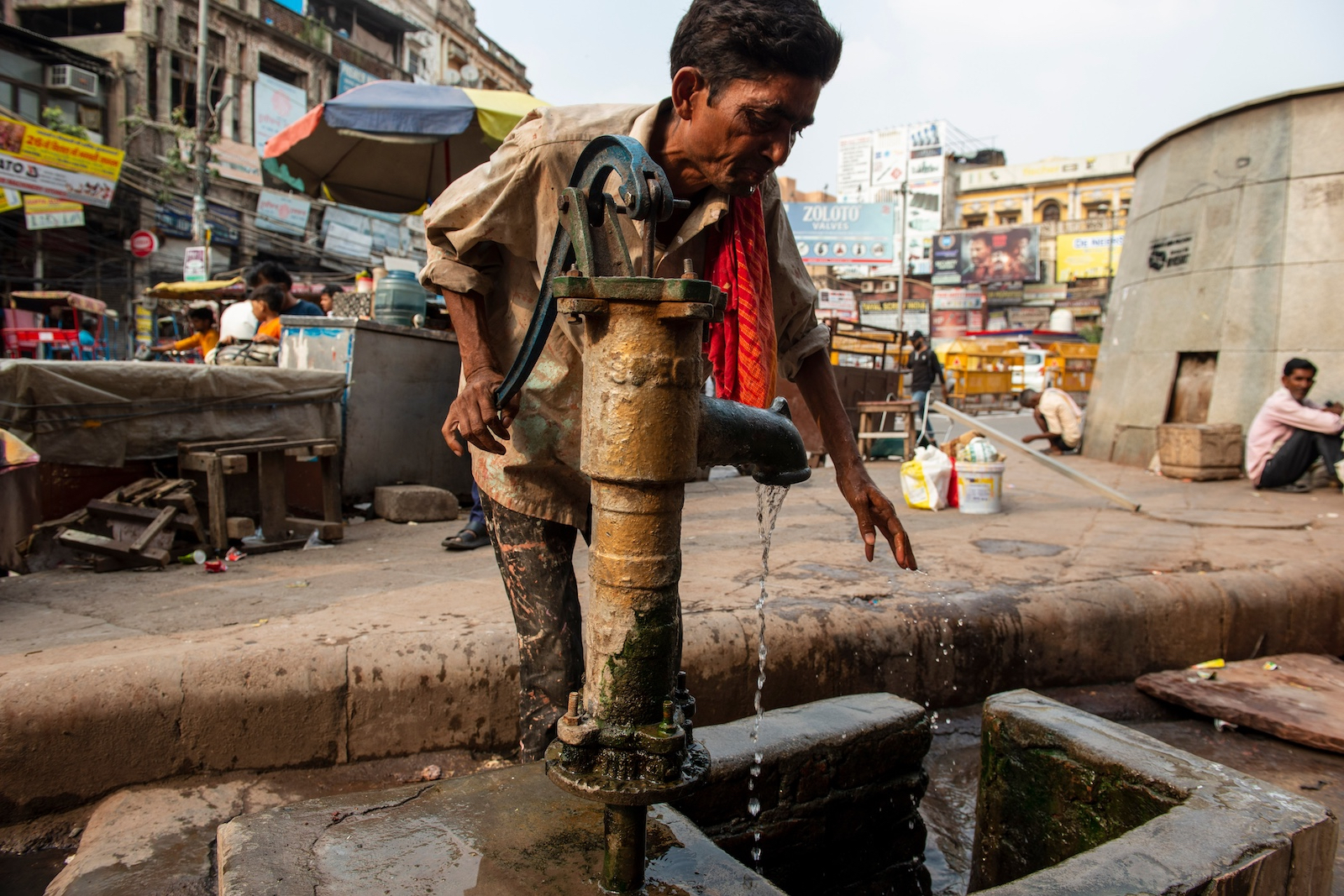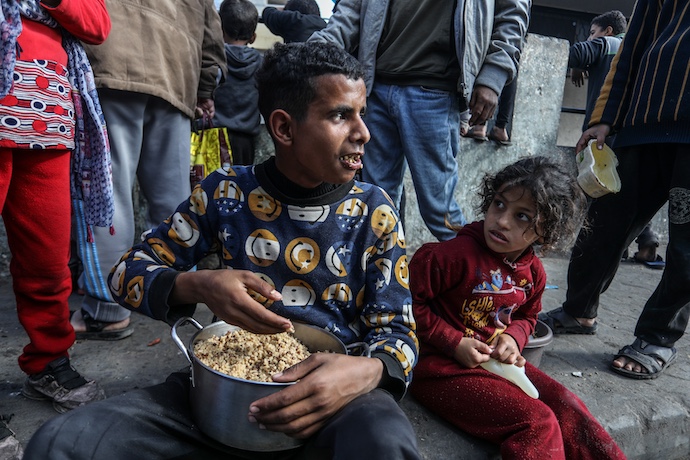
Millions of People Around the World Face Imminent Disaster
In a sweeping wave of crises, four corners of the globe—India, South Africa, Gaza, and Haiti—find themselves on the brink of humanitarian catastrophe. Each region, beset by its own unique set of challenges, stands at a precipice, teetering between resilience and calamity.
Bengaluru, the capital of India’s southern Karnataka state, is running out of water, and it still faces several months of suffocating heat. Bengaluru experienced an unusually hot February and March, and in the last few years, it has received little rainfall in part due to climate change. Water levels are running desperately low, particularly in poorer areas, resulting in sky-high costs for water and a quickly dwindling supply.
While some efforts are being made to alleviate the crisis, experts and many residents fear the worst is still to come in April and May when the summer sun is at its strongest.
Bengaluru is one of the fastest growing cities in the world and the city’s aging water infrastructure is not able to keep up with a growing population, which currently stands at around an astounding 14 million people.
In Johannesburg, South Africa, an unprecedented collapse of its water system is affecting millions of people. While hot weather has contributed to the evaporation and heavy usage of water reservoirs, crumbling infrastructure after decades of neglect is also largely to blame. The region’s six million inhabitants is facing a major humanitarian crisis if a solution is not found soon.
Several thousands of miles away, Gaza and Haiti are said to be on the brink of famine. According to the Associated Press, food security experts and aid groups are warning about the toll from hunger caused by the war between Israel and Hamas in Gaza and the crisis in Haiti caused by criminal gangs attacking the country’s key government institutions.

The Integrated Food Security Phase Classification (IPC), an organization that follows hunger worldwide, warns that more than one million Gazans could face famine if Israel expands its offensive in the southern city of Rafah. About half of the territory’s residents are crowded into the city, which is only 25 square miles. The report says that a majority of Gazans lack enough food, with children and babies suffering from acute malnutrition.
According to the New York Times, more than 15,000 aid trucks have entered the territory since October 7 at two entry points in the enclave’s south. Most have entered through Rafah, on Gaza’s border with Egypt. The other entry point is at Kerem Shalom, an Israeli crossing.
But the aid is being pilfered by Hamas fighters and security forces and then being resold on the black market for exaggerated prices. Most Palestinians in Gaza are simply unable to afford basic supplies such as flour, rice, and water and are going hungry. Adding to their misery is the fact that Palestinians are observing Ramadan during which they fast during the day and only eat at night or in the early morning.
And in Haiti, according to the United Nations World Food Program, four million people need food assistance and about 1.4 million others are on the edge of famine.
The situation in Port-au-Prince is rapidly deteriorating. Gangs have taken control of the city, leading to a scarcity of necessities like food and fuel, which are now being sold at exorbitant prices on the black market. This comes three years after the assassination of President Jovenel Moïse, leaving the country without a functioning government. Prime Minister Ariel Henry announced his resignation recently, exacerbating the power vacuum. Neither the police nor the armed forces are capable of restoring order.
According to the UN Office for the Coordination of Humanitarian Affairs (OCHA), the UN and its humanitarian aid partners are working around the clock to deliver aid. UNICEF and other organizations have delivered more than 242,000 gallons of water since early March, while the UN World Food Programme and its partners have provided more than 146,000 hot meals.
Still, even with all this aid, it remains short of the necessary amount required to prevent an all-out catastrophe.
Russel L. Honoré, a former U.S. Army commander who in 2022 mediated the Haiti Unity Summit at the Southern University Law Center following the assassination of Moïse, has suggested the U.S. Congress pass legislation enabling assistance to Haitian law enforcement and the military, alongside funding for necessary supplies and training. Additionally, he emphasizes the need for U.S. efforts to curb the flow of illegal arms to Haiti, a significant factor in empowering gangs.
With India, South Africa, Gaza, and Haiti all facing such a monumental disaster, millions of desperate civilians cannot wait for the world to eventually find a solution. That time is now, and it is nothing short of an emergency.

